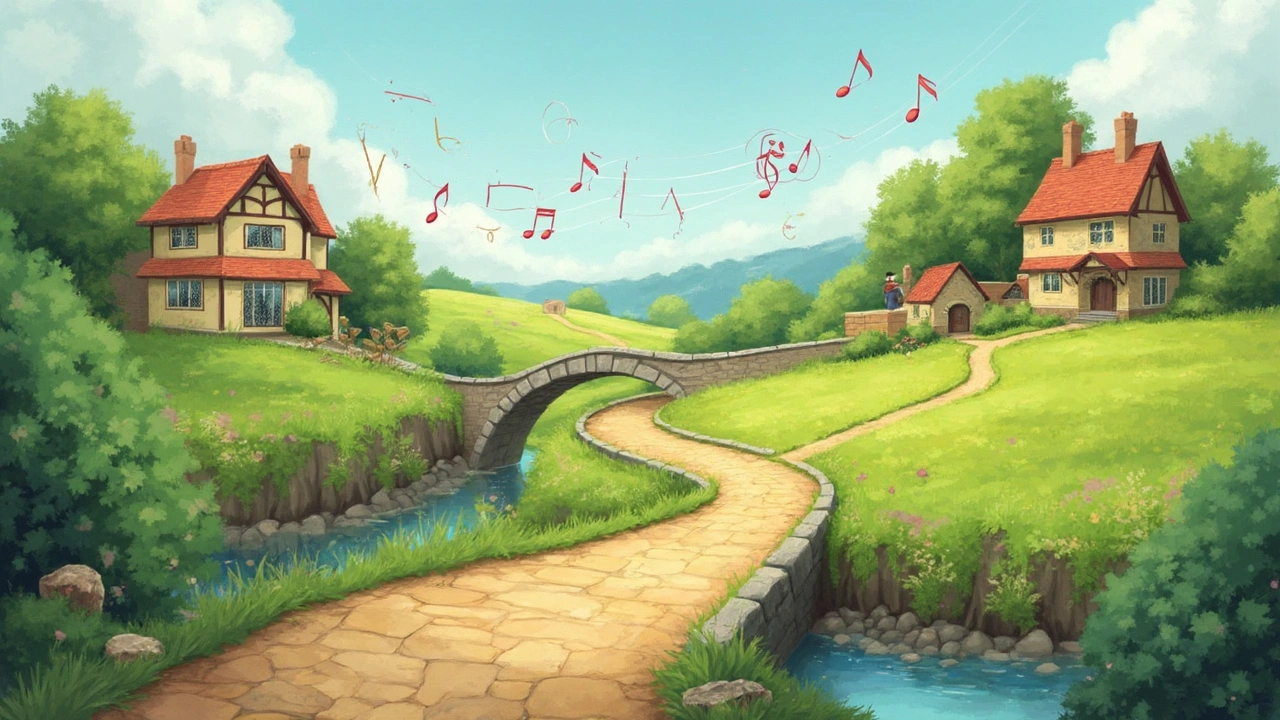Have you ever felt stuck playing the same tunes without much progress? Boosting your piano skills isn't just about spending more hours at the keyboard. It's about being strategic and a bit creative in your approach.
Start with a well-rounded practice routine. It's not about the time spent, but how you spend it. Focus on the fundamentals—scales, chords, and arpeggios are your bread and butter. Even those dizzying finger exercises that seem like a chore can make a huge difference.
And hey, why not train your ears a bit? Being able to recognize different pitches and intervals can do wonders for your improvisation skills and music comprehension. It's like giving your ears a superpower.
- Building an Effective Practice Routine
- The Importance of Ear Training
- Exploring Different Genres and Styles
- Overcoming Plateaus and Challenges
Building an Effective Practice Routine
If you're trying to really up your game on the piano, having a rock-solid practice routine is a total game-changer. Many pianists swear by the mantra—quality over quantity. Sure, clocking in more hours sounds great, but what you do with those minutes is what counts.
First off, break down your practice time into chunks. Consider dividing it like this: technique, pieces, and then some fun, creative time. Maybe spend around 10-15 minutes on scales and technical exercises. Trust me, these basics can boost your speed and coordination.
Next, dive into your repertoire. Play through your pieces, but don’t just run through them absent-mindedly. Focus on problem areas and work through each piece with intention. Try recording yourself. Listening back can highlight spots needing extra love.
Then, keep some time for sight-reading or playing something just for fun. It's like dessert after a meal—pure joy and a great way to keep things light and enjoyable.
Renowned pianist Lang Lang once said, "Practice should be an exploration of sound, an entire experience." Embrace this mindset!
- Plan your sessions beforehand.
- Make your goals specific and measurable—like nailing a tricky passage or increasing tempo.
- Stay flexible, but be consistent. Routines help build discipline.
And if you're into numbers, consider this: A consistent daily routine of even 20-30 minutes can trump sporadic marathon sessions when it comes to progress. It’s all about keeping consistent.
The Importance of Ear Training
Imagine being able to play a song just by listening to it! That's the magic of a well-trained ear. Ear training isn't something only top musicians need; it's a game-changer for anyone trying to level up their piano skills.
When you improve your listening ability, you naturally become better at identifying notes, chords, and progressions. This means you can pick up new tunes faster or even improvise like a pro. For instance, when you hear a melody, you'll soon start recognizing if it's in a major or minor key or which chord fits perfectly over a given note.
Starting with simple exercises can make a big difference. For instance, try identifying intervals—the distance between two notes. Recognize if you're hearing a perfect fourth or a major third. Just like a familiar voice, these intervals will soon become easier to recognize.
- Play back notes and try to name them. Start with a single note and work your way up to chords.
- Sing along with scales to better understand their sound structure.
- Use apps or software dedicated to ear training. They offer tailored exercises and instant feedback.
Engaging with different musical genres can also enhance ear sensitivity. Whether it’s jazz or classical, each style has its own nuances. Relish the variety and observe how your perception sharpens.
For a quick tangible benefit, check this out: Research has shown that musicians with a strong grasp of ear training experience a 50% faster progression in mastering new pieces. It's like adding rocket fuel to your practice sessions.

Exploring Different Genres and Styles
Switching up the genres you play can seriously level up your piano skills. Think about it: sticking to one style is like eating the same meal every day. Boring, right? From the jazzy flair to the classical depth, there's so much to dig into.
Jazz, for instance, isn't just about random notes. It's about feeling the groove and understanding complex chords and progressions. When you dive into jazz, you’ll notice how your improvisation skills jump forward. You'll get comfortable with 7th chords, diminished scales, and those tasty blue notes.
Classical music requires another kind of discipline. It's like a workout for your technique and precision. Pieces from folks like Bach, Beethoven, or Chopin will push your technical abilities and refine your emotional expression.
Want a bit more fun? Pop and rock genres are great for understanding catchy melodies and modern chord progressions. Ever tried playing something by Elton John or The Beatles? The songs are not just simple tunes; they offer insight into song structure and harmony.
Don't forget about world music. Salsa, reggae, Indian ragas—there’s so much to learn from just listening and trying to replicate these exotic rhythms and scales.
| Genre | Focus Area |
|---|---|
| Jazz | Improvisation & complex chords |
| Classical | Technical precision & expression |
| Pop/Rock | Melody & modern chords |
Mixing it up keeps things fresh and exciting. You'll never get bored, and importantly, each style you explore adds another layer to your skills. Plus, it feels awesome when you can play everything from jazz tunes at a cozy coffee shop gig to rocking out with a band on stage!
Overcoming Plateaus and Challenges
Hit a wall with your piano skills? You're not alone. Many piano players face these frustrating periods where growth seems impossible. But don't sweat it—there are ways to break through those barriers.
First off, shake things up a bit. If you've been grinding away at the same piece for what feels like forever, it's time to tackle something new. Explore different genres and styles—try a jazz standard or a classical sonata. This not only freshens up your routine but also exposes you to new techniques.
Also, consider recording yourself. It might be cringy at first, but listening to your own playing is like having an out-of-body experience. You'll catch nuances and mistakes that you'd never notice while you're in the zone.
Get feedback from others. Whether it's a piano teacher or even a fellow musician, a fresh pair of ears can provide valuable insights. They might spot areas you can improve or different fingerings that could ease tricky passages.
Lastly, if motivation's running low, set achievable goals. Break that daunting piece into bite-sized sections, and nail each one before moving on. Celebrate those small wins—they're your stepping stones to mastering the piece.
And remember, practice smart, not just hard. Work on your ear training and incorporate some sight reading into your practice sessions. Tackling these aspects will help keep your progress steady.
| Tip | Benefit |
|---|---|
| Exploring new styles | Exposes you to new techniques |
| Recording yourself | Helps identify areas to improve |
| Setting small goals | Makes progress more manageable |
Every pianist hits a plateau now and then, but with the right mindset and methods, you can break through and take your playing to new heights. Keep at it!

